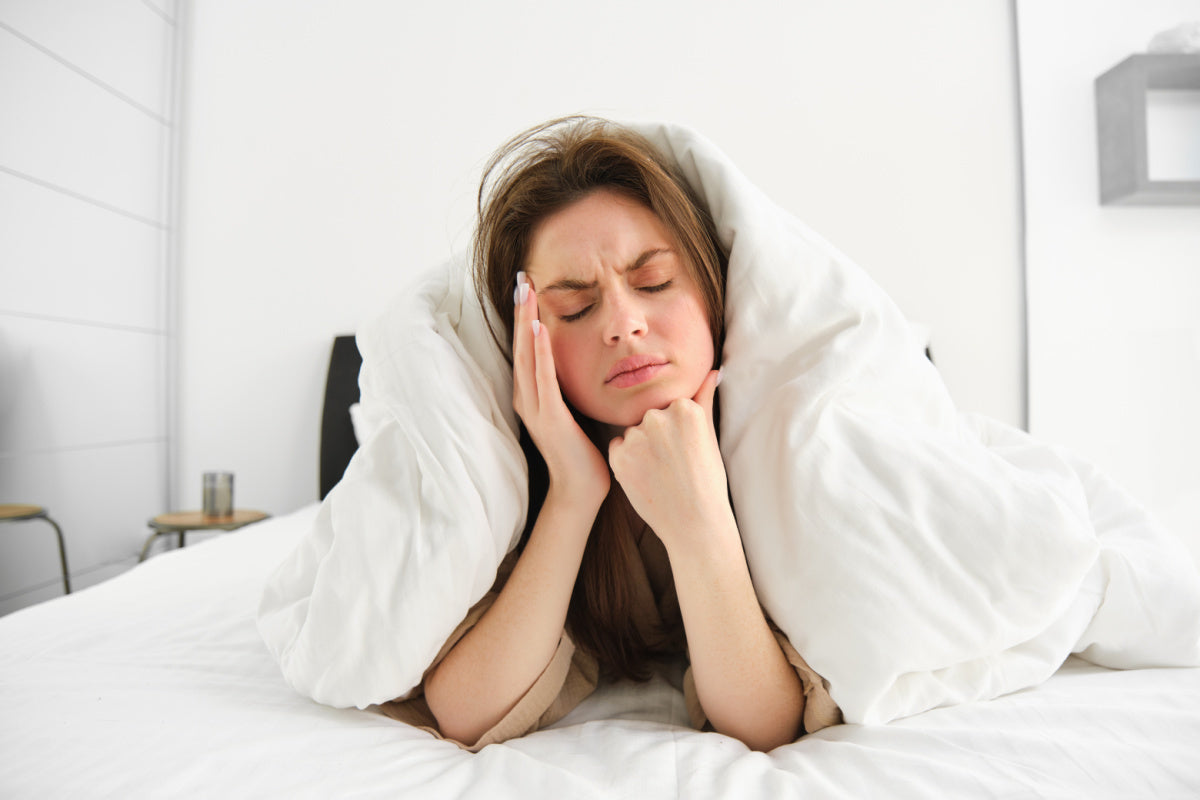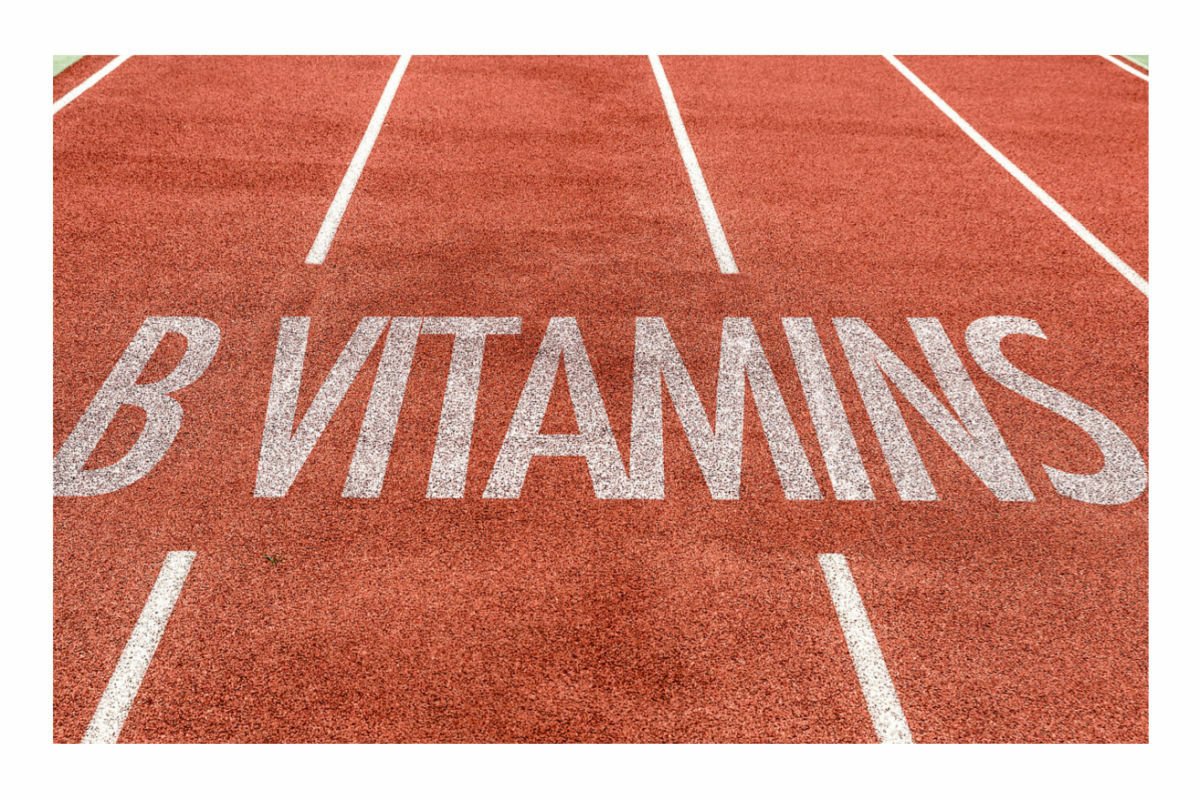
What Causes a Hangover?
When you wake feeling hungover, already experiencing seriously unpleasant symptoms such as nausea, anxiety, and a pounding headache, your first two questions may understandably be: “why do hangovers happen in the first place?” and, “how can I start feeling better really soon?”
We’ll start by answering the first question in detail, explaining the underlying cause for both physical and mental symptoms of a hangover. Then, we’ll move on to possible hangover remedies, explaining what to do to mitigate the aftereffects of drinking alcohol (both before and after drinking) - specifically, to prepare yourself for a night of drinking and to help support your body as it recovers.
What Are the Primary Causes of a Hangover?
It’s not hard to tell when you’re hungover. Clear signs of a hangover typically include fatigue, nausea, headache, stomach pain, anxiety, muscle aches… and so on.
But why does alcohol cause a person to experience these feelings? Our bodies are complex, so the answer is also fairly complex…
Acetaldehyde Production
First on the list of hangover causes is acetaldehyde production. On a chemical level, there are several different types of alcohol (most of which are not safe for human consumption). Alcoholic drinks contain alcohol in the form of ethanol. As the body breaks down (or metabolizes) ethanol, it creates a toxic chemical called acetaldehyde.
Toxic Byproduct of Alcohol Metabolism
Along with methanol, another toxic byproduct of ethanol metabolism, acetaldehyde is the cause of many typical hangover symptoms. Acetaldehyde is a highly toxic chemical as well as a likely human carcinogen, meaning that acetaldehyde exposure likely increases the risk of developing cancer. As the liver processes alcohol, acetaldehyde is formed, which can contribute to oxidative stress, inflammation, and the eventual development of fatty liver disease, hepatitis, and cirrhosis. Acetaldehyde exposure has also been associated with an increased risk of cardiovascular issues, including heart muscle damage and atherosclerosis.
Imbalance of Neurotransmitters
If you experience mental and emotional symptoms after a night of heavy drinking, you’re not alone. These symptoms can be attributed to alcohol’s disruptive effects on levels of important neurotransmitters, particularly GABA and glutamate.
To simplify how they work, glutamate turns the brain on, and GABA turns it off. Each time your brain releases glutamate, it also releases GABA, creating a healthy balance. Alcohol disrupts this balance.
Increase in GABA Activity & GABA Rebound
Drinking alcohol stimulates gamma-aminobutyric acid (GABA) activity by modulating the GABAA receptors, which creates the relaxing, central nervous system depressant, effects associated with alcohol. Initially, alcohol consumption boosts GABA activity, reducing anxiety through its calming effects on the brain. However, once the influence of alcohol wanes, the decrease in GABA activity combined with heightened excitatory signals leads to a rebound effect, manifesting as increased feelings of anxiousness. With additional and increased alcohol consumption, this relaxation can turn into impaired judgment and even loss of consciousness (“blacking out”).
Blocks Glutamate Receptors
Glutamate is essential for brain functions such as memory, cognition, and regulating mood. Alcohol blocks glutamate receptors which can greatly limit your ability to create memories. When drinking alcohol, we eventually end up with a temporary excess of GABA and a deficiency of glutamate; the worse the imbalance, the more severe our alcohol withdrawal symptoms are likely to be.
Dehydration
Alcohol and dehydration are strongly associated since alcohol is a potent diuretic. More specifically, alcohol causes increased urination since it commonly inhibits vasopressin, a hormone that typically reduces urine production. This is exacerbated by activities associated with drinking such as dancing, which can lead to further loss of electrolytes through sweat loss.
Vasopressin Suppression
When you drink alcohol, your body will produce less vasopressin, otherwise known as antidiuretic hormone (ADH). With less ADH in the body, the kidneys tend to release more water than they would do so normally, which can quickly lead to dehydration. Anyone drinking alcohol should compensate for this effect by putting extra effort into hydration.
Gut Irritation
Since alcohol is one of the most common gut irritants, drinking alcohol can often lead to all kinds of unpleasant symptoms of an irritated gut, such as nausea, stomachache, bloating, poor appetite, and abdominal pain. When you have an irritated gut, the cells that line your gut are temporarily inflamed. (Ultimately, this can eventually lead to a potentially serious and painful condition called alcoholic gastritis.)
Interrupted Sleep
Although drinking alcohol may make you feel sleepy, drinking alcohol before going to bed can actually result in interrupted or shallow sleep, since alcohol disturbs your “sleep architecture,” which are the patterns of lighter/deeper sleep phases that are experienced throughout the night. When you go to bed while drunk, alcohol can throw these patterns into chaos, causing you to wake up throughout the night and miss out on a significant amount of needed rest and repair by the time you wake in the morning.
Minor Alcohol Withdrawal
You may not have realized, but hangover symptoms are actually minor alcohol withdrawal symptoms. Although the symptoms are much less severe than those suffered by alcoholics, they are nevertheless a form of alcohol withdrawal. Most often, these symptoms begin about 10 hours after your blood alcohol concentration (BAC) peaks.
Inflammation
Alcohol can cause damage to blood vessels in the gut, to which the immune system responds with inflammation. This inflammation can cause physical symptoms such as nausea, vomiting, headaches, confusion, and shaking, as well as mental symptoms such as mood changes and cognitive impairment.
The Best Supplements to Take Before and After Drinking Alcohol
You can mitigate the aftereffects of drinking alcohol with a combination of two supplements from Capsulyte: PREGAME (taken before drinking) and HYDRATION (taken after drinking). Both supplements were formulated by internal medicine physician Dr. Dan Nguyen, MD, MBA, using evidence-based combinations of ingredients that address the underlying causes of feeling awful after drinking described above.
Capsulyte’s PREGAME
PREGAME, which (as its name suggests) is meant to be taken before you start drinking, and contains the following key ingredients:
- N-acetyl cysteine (NAC): NAC is a form of the amino acid cysteine and a building block of glutathione. Glutathione is a powerful antioxidant that can neutralize free radicals that contribute to oxidative stress and cell damage. Glutathione may also help to neutralize toxic byproducts of alcohol metabolism such as acetaldehyde.*
- Dihydromyricetin (DHM): DHM is another antioxidant as well as a potent anti-inflammatory. This compound may reduce stress levels and improve cognitive function.*
- Clovinol®: Yet, another antioxidant and anti-inflammatory compound, Clovinol® is derived from actual clove buds. In one study, supplementing with Clovinol® was found to lower participants’ blood levels of acetaldehyde and reduce the severity of their drinking aftereffects by 55 percent.*
- Siliphos®: Siliphos® is derived from milk thistle and may be beneficial for liver health, which alcohol impacts negatively. Milk thistle extract has been shown to protect against liver disorders and increase the life expectancies of those with alcoholic liver disease-related cirrhosis.*
Capsulyte’s HYDRATION
HYDRATION is designed to help you fight dehydration after a session of drinking. It contains a combination of essential electrolytes, vitamins, and minerals that are often depleted with alcohol consumption:
- Hydra 4G™: An optimal ratio of sodium, potassium, magnesium, and calcium that replenishes lost electrolytes.*
- B vitamins: Important for the body’s regulation of energy metabolism, red blood cell formation, and neurological function.*
- Liposomal Pureway C™:A form of clinically studied vitamin C that supports the body’s immunity and its ability to neutralize free radicals.*
- Zinc: An important mineral that is often lost with alcohol consumption, and that is essential for healthy immune response and normal gut function.*
For more details on how Capsulyte products can support your body before and after drinking, visit the Capsulyte blog.


